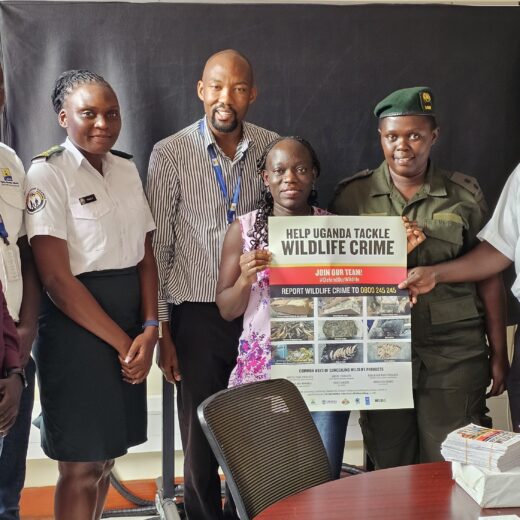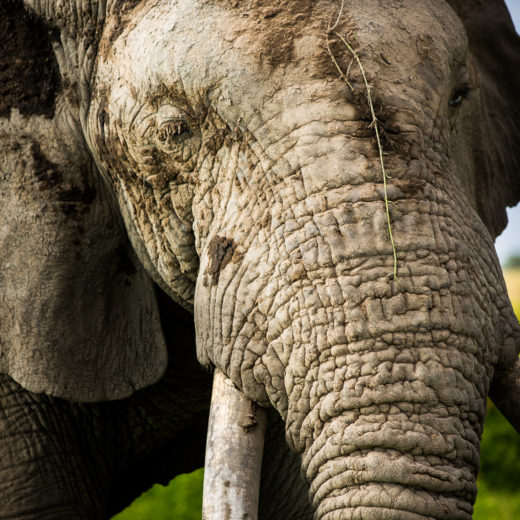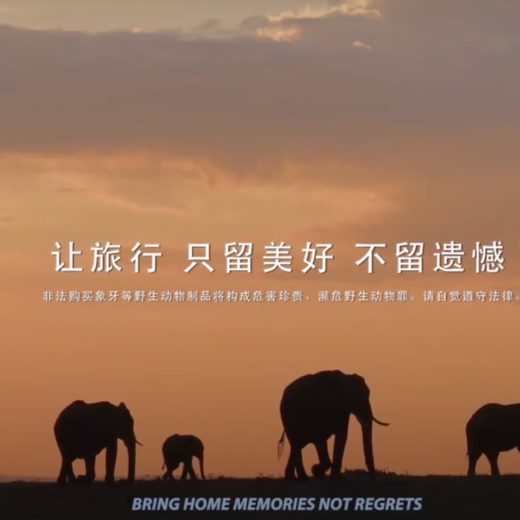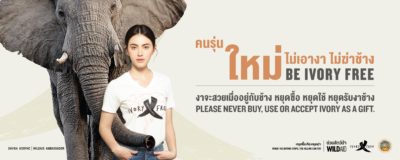
Oct 5th – As part of its Ivory Free campaign, WildAid launched a new video and billboard series in Thailand featuring leading actress and international fashion icon ‘Mai’ Davika Hoorne, with an endorsement from Thailand’s Department of National Parks, Wildlife and Plant Conservation.
Davika, known as one of the most successful actresses of her generation, has a deep affinity for elephants: “Elephants are close to all Thai people’s hearts as everyone grew up with the children’s song called the ‘Elephant Song.’ It saddens me to learn that today the human demand for ivory is the leading cause of a declining elephant population in Africa,” said Davika.
According to USAID Wildlife Asia’s June 2018 study, Research on Consumer Demand for Ivory and Tiger Products in Thailand, ivory is perceived as the “perfect gift,” and ivory accessories and jewelry remain popular with female consumers because of their perceived beauty and attractiveness.
“I urge all Thais to be ivory free and no longer use accessories and jewelry made from ivory to define beauty or fashion. Ivory belongs to elephants and is beautiful only on elephants,” added Davika.
The campaign includes a new video message inspired by a children’s song known to most Thai citizens, the Elephant Song. In the video, Davika sings a new version of the song while leading a group of children to see elephants in the wild. The video concludes with the message: “Ivory is beautiful only on elephants.”
“Mai Davika so eloquently expresses an important message, and the more people learn about the impacts of using ivory products, the less they will want to take part in this cruel trade. With help from such influential voices, government agencies, corporate and media partners, we aim to establish a new societal norm around ivory and protecting elephants. Together, we can end the demand for ivory and save dwindling elephant populations, because when the buying stops, the killing can too,” said John Baker, Chief Program Officer, WildAid.
The launch is part of WildAid’s Ivory Free campaign, which aims to reduce demand for ivory in the United States, mainland China, Hong Kong SAR and Thailand. There are signs the public awareness campaign is working. The price of ivory has declined by 70% in mainland China and Hong Kong SAR, from $2,100 per kilo to around $500 per kilo. China, once the world’s largest ivory market, banned all domestic ivory sales in 2017.
In 2015, the Thai government enacted strong regulations to control the ivory trade, including introducing the Elephant Ivory Act and prohibiting the domestic sale of African elephant ivory by listing the African elephant as a protected species in Thailand. Since the ivory act was introduced, 47% of all traders (100 in total) voluntarily filed to revoke their licenses. Thailand has also seen a 58% decrease in sales of registered ivory items compared to mid-2016.
“Thailand is committed to tackling the illegal ivory trade and we believe that to completely end it, law enforcement and reducing demand among consumers must go hand in hand. We hope that our partnership with WildAid to reduce consumer demand through the Ivory Free campaign will prove that we will keep up our fight to protect the world’s elephants,” said Pinsak Suraswadi, Deputy Director General to Department of National Parks, Wildlife and Plant Conservation, Thailand.
The public service announcement and print billboards will be widely distributed throughout Thailand, including Suvarnabhumi Airport in Bangkok, several national television channels and multiple social media platforms.
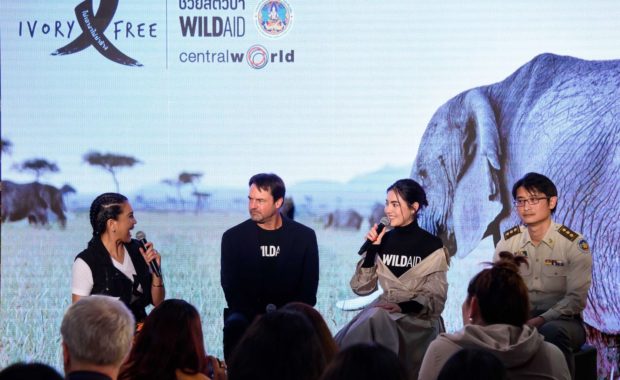

For more information, contact Rabia Mushtaq at rabia@wildaid.org.
Stay in touch and get the latest WildAid updates.
SIGN UP
